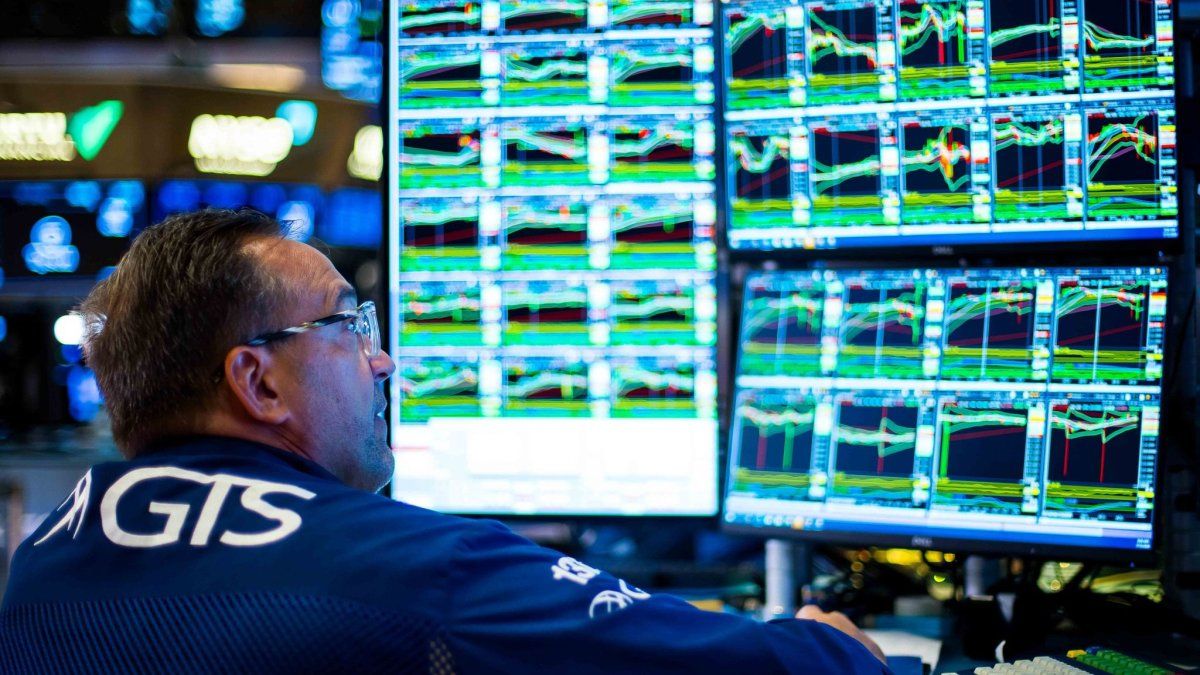In this context, the Dow Jones index of industrialists fell 0.7% to 42,215.80 points; The S&P500 lost 0.85% to 5,981.67pantos and the Nasdaq Composite depreciated 0.91% to 19,521.09 points
An unpredictable contest end
In a social media post on TuesdayTrump demanded that Iran accept an “unconditional surrender”, stating that “we now have total control over the heavens of Iran.” The United States is not directly involved in the ongoing conflict, but has supplied weapons to Tel Aviv, which, according to Trump, have proven to be superior.
Trump also admonished Iran for Do not accept a previous nuclear agreement. The American president frequently stated that Iran will not be allowed to enrich uranium, despite Tehran’s claims “that has no plans to develop nuclear weapons.”
Trump left the G7 meeting (group composed of Canada, France, Germany, Italy, Japan, the United Kingdom and the United States), in Canada ahead of time and, in a publication on social networks, said that his departure “had nothing to see with a stop to fire” Adding that, on the other hand, I was related to something “much more important.”
Before Trump’s departure, G7 countries had issued a statement asking for a distension of the conflict, but supported Israel and described Iran as a source of instability in the Middle East.
The Federal Reserve began the two -day meeting to set its monetary policy
Beyond geopolitical tensions, the Federal Reserve has started a two -day meeting, which is expected to remain interest rates without changes at the end of Wednesday.
President Jerome Powell’s comments on the trajectory of interest rates will be the center of attention, amid indications of deceleration of inflation and some resilience in the economy.
Unthinkable fall in retail sales
On the other hand, retail sales in the US fell more than expected in May, 0.9 % after a falling down 0.1 % in April, weighed down by a decrease in motorized vehicles purchases, in dwarfing the hurry to avoid possible price increases related to tariffs.
Economists had predicted that retail sales, which consist mainly of goods and are not adjusted to inflation, would decrease 0.7 % after an increase of 0.1 % in April, previously reported.
What happened to some of the Wall Street actions?
Ver Therapeutics more than 80% shot with Eli Lilly (-1.8%) near buying the biotechnological company at US $ 1,300 million.
Solar energy actions ENFASE ENERGY INC Sunrun (-25%) First Solar (-40%) and Solaredge Technologies (-34.4%) They fell dramatically after the modifications of the US Senate to the Trump’s Tax Cuts Law, reveal the gradual elimination of tax credits for solar, wind and nuclear energy by 2028.
Meanwhile Oklo (-3%) and Nuclear Nano Energy (-2.1%) despite the fact that the American Senate subsequently extended the credits for nuclear energy until 2036.
Israel – Iran: Capital Economics analyzes the “limited” reaction of the stock market
The economic and financial impact of the conflict between Israel and Iran will possibly be moderate unless there is a “real interruption” in the flow of energy supplies, according to economic capitalists.
Despite the increase in violence among regional rivals, the effect on the main global financial markets has been “relatively limited,” analysts led by Jonas Goltermann argued in a note.
Crude prices experienced some volatility due to growing concern, that violence can extend to the maritime routes that come out of the Middle East, particularly to the Ormuz Strait. So far interruptions have been reported. For their part, the main indices of Wall Street closed upwards on Monday, while the yields of the bonds and currencies remained almost stable, with analysts pointing out “some moderation in fears on the implications of several days of air attacks between Israel and Iran.”
“The lack of greater volatility because of the conflict seems to reflect the opinion that, as happened with other escalations in the region in recent years, it will not result in significant damage to energy production or transport infrastructure,” Economics capital analysts emphasized.
“Ultimately, that is the main channel through which the conflict could have an important impact on the global economy.” However, they pointed out that the intensification of tensions in the Middle East arrives at a “complicated moment” for investors who are already dealing with the lack of clarity around the US commercial and fiscal policies. “An unpredictable environment” has become “even more unpredictable,” added the connoisseurs.
Meanwhile, the Trump administration is discussing with Iran the possibility of having conversations this week about a possible nuclear agreement and the end of the conflict with Israel, as reported by Axios Communicators.
Source: Ambito
I am a 24-year-old writer and journalist who has been working in the news industry for the past two years. I write primarily about market news, so if you’re looking for insights into what’s going on in the stock market or economic indicators, you’ve come to the right place. I also dabble in writing articles on lifestyle trends and pop culture news.




